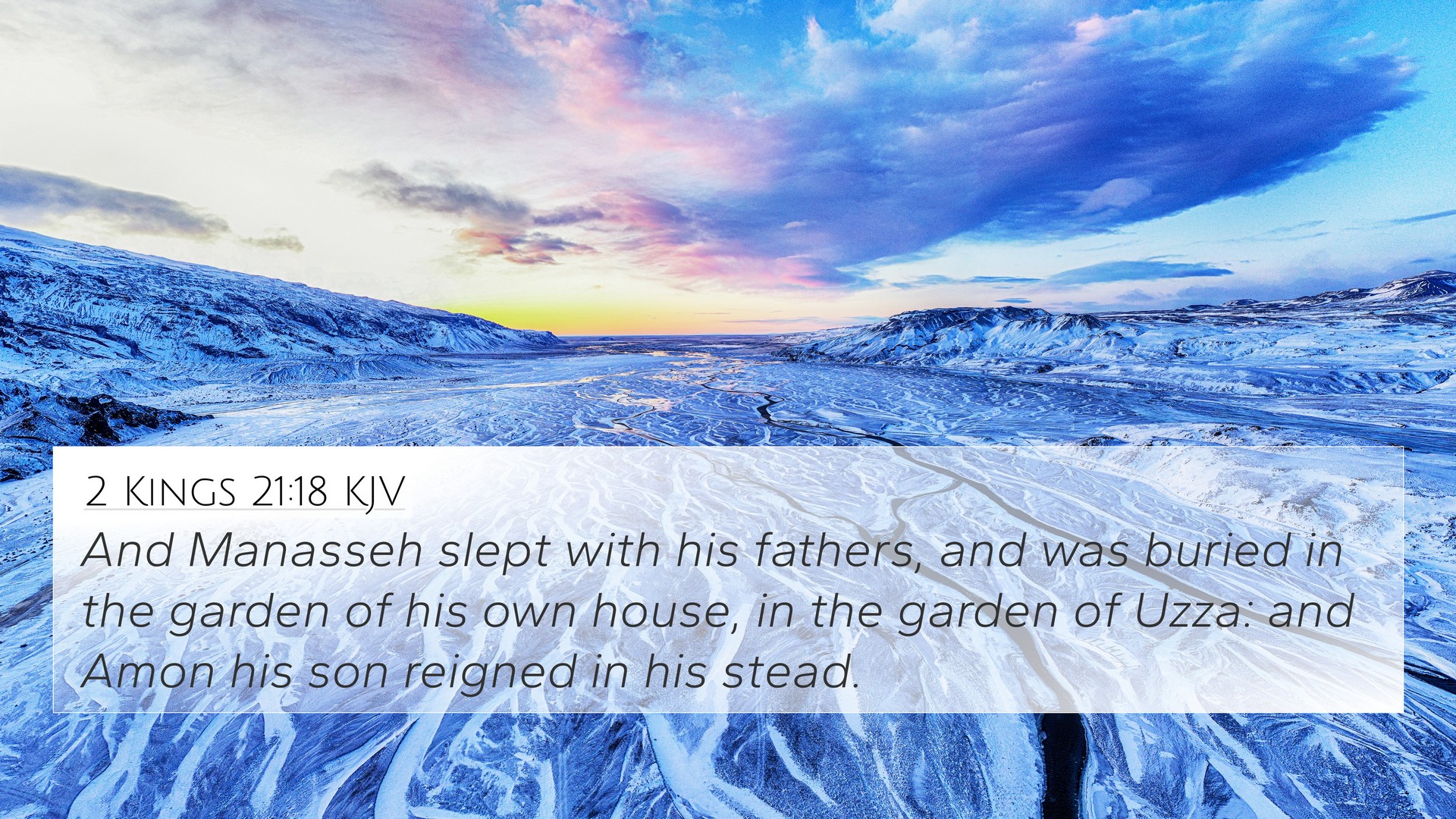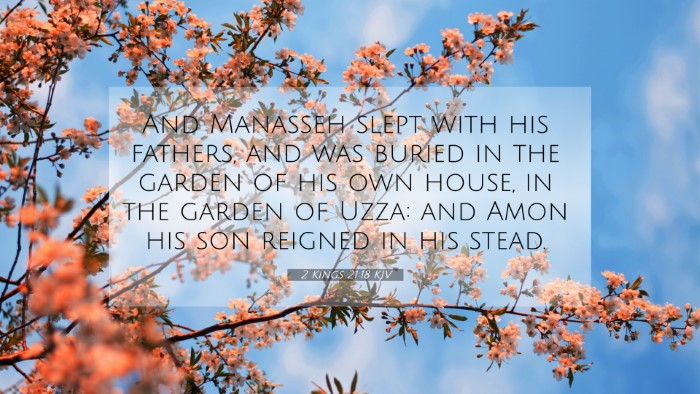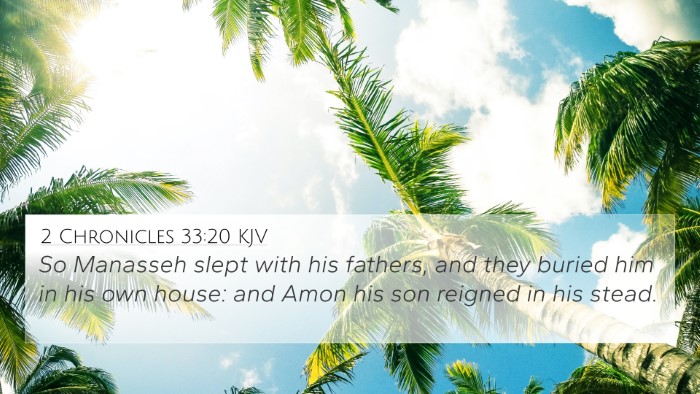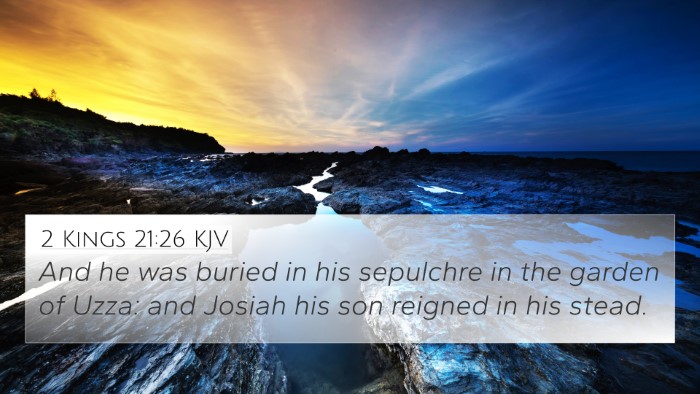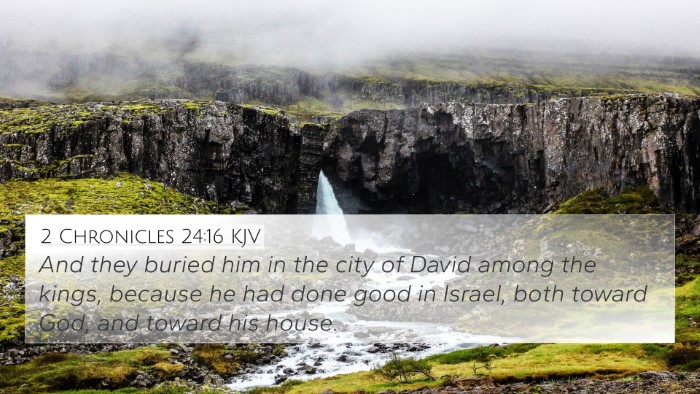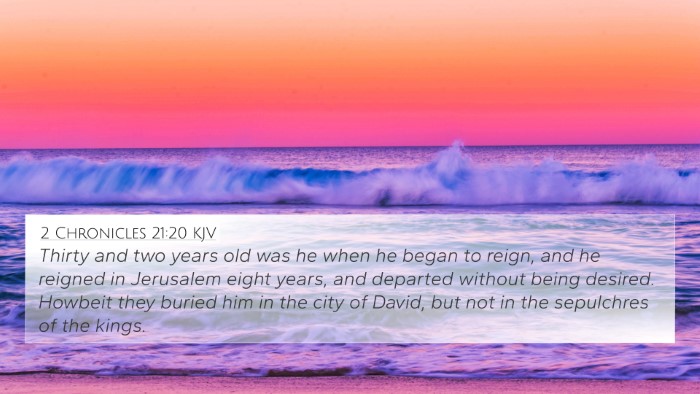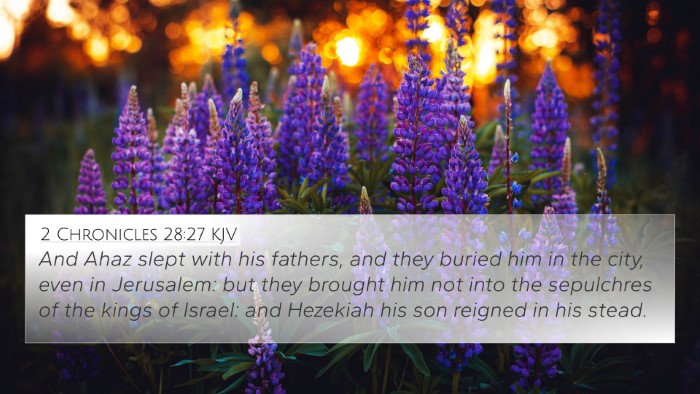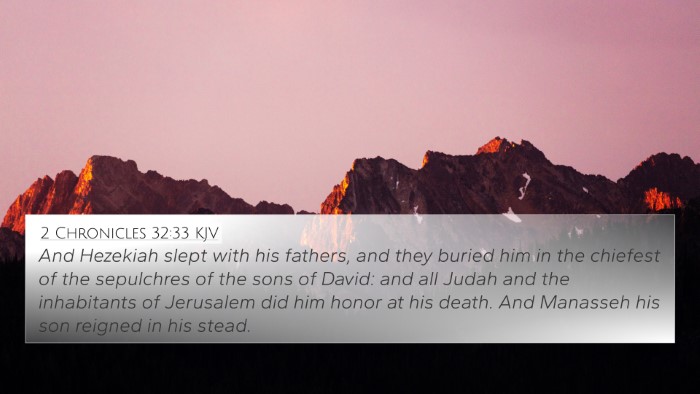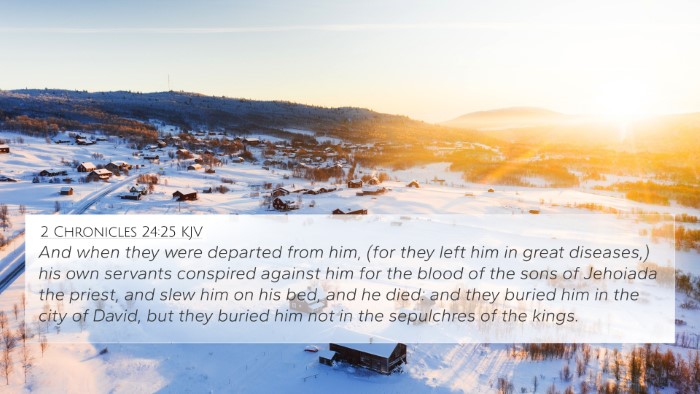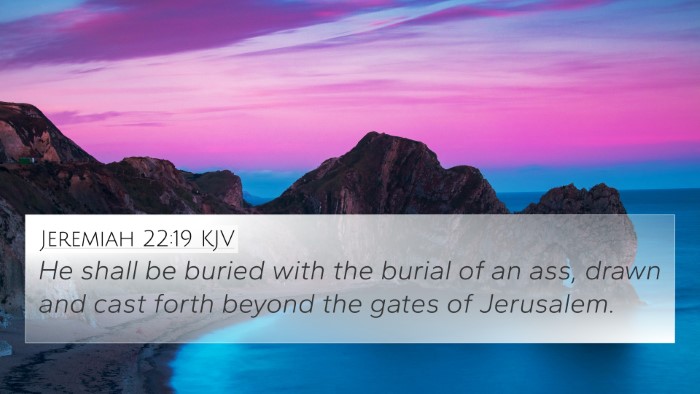Understanding 2 Kings 21:18
Verse: "And Manasseh slept with his fathers, and was buried in the garden of his own house, in the garden of Uzza: and Amon his son reigned in his stead." (2 Kings 21:18)
This verse marks the end of King Manasseh's reign over Judah. It reflects on his death and burial, portraying a sense of closure in a turbulent period. The statement that he was buried in the garden of his own house indicates a form of honor, despite the sinful legacy he left behind.
Summary of Insights from Commentaries
The following insights integrate perspectives from public domain commentaries by Matthew Henry, Albert Barnes, and Adam Clarke:
-
Matthew Henry's Commentary:
According to Matthew Henry, Manasseh's reign was notable for his extreme idolatry and turning the people of Judah away from God. His burial in a private garden rather than in the royal tombs suggests a certain dishonor due to the bloodshed and iniquities associated with his reign.
-
Albert Barnes' Notes on the Bible:
Barnes elaborates that the “garden of Uzza” is significant, representing a personal sanctuary that contrasts with the polluted spiritual state of the kingdom under Manasseh's influence. This juxtaposition highlights how one's personal choices can lead to wider implications for leadership and faithfulness in God's covenant.
-
Adam Clarke's Commentary:
Clarke views this verse as a pivotal moment reflecting on the legacy of Manasseh, stressing that despite his evil ways, he still had a son, Amon, who continued his legacy. Clarke also emphasizes the importance of familial lineage in the context of Israelite kingship.
Thematic Connections
In examining 2 Kings 21:18, we can identify several thematic connections and cross-references within the Bible, demonstrating the intricate tapestry of scripture and the recurring themes of leadership, legacy, and judgment:
- 2 Kings 21:16: Discusses the bloodshed Manasseh caused, which frames his burial and legacy.
- 2 Chronicles 33:20: Provides a parallel account of Manasseh’s end, highlighting God's mercy despite his earlier sins.
- Jeremiah 15:4: Identifies the consequence of Manasseh’s actions leading to Judah's eventual downfall.
- Luke 3:33: Mentions Manasseh in the genealogy of Jesus, showcasing the continuity of God’s plan despite human failure.
- Romans 15:4: Highlights the value of the scriptures in providing hope and instruction, relevant in discussions about leaders like Manasseh.
- Matthew 1:10: Similarly links the genealogical line, emphasizing God's sovereign hand despite evil kings.
- Micah 5:7-8: Explores the remnant of Israel, touching on themes of hope and redemption contrasting with kings like Manasseh.
Cross-Referencing Insights
The act of cross-referencing is essential for deeper biblical understanding. Here are tools and methodologies for effectively engaging with scripture:
- Bible Concordance: A vital resource for locating terms and themes across verses.
- Bible Cross-Reference Guide: A systematic approach to exploring related scriptures.
- Cross-Reference Bible Study: A method of studying the Bible through interconnected verses.
- How to Use Bible Cross-References: Learning the art of identifying and utilizing interrelated texts.
- Bible Cross-Reference System: Encouraging an organized view of biblical narratives through cross-references.
- Cross-Referencing Bible Study Methods: Various techniques to delve into comparative studies between verses.
- Bible Reference Resources: Compiling various materials geared towards cross-referencing.
- Bible Chain References: Establishing a chain of related verses for in-depth study.
- Comprehensive Bible Cross-Reference Materials: A roadmap for exploring the interconnected nature of scripture.
Concluding Thoughts
As we reflect on 2 Kings 21:18 and King Manasseh's life and reign, we see a powerful narrative illustrating the complexities of spiritual leadership, familial influence, and the grace of God despite human sinfulness. Utilizing tools for cross-referencing enhances our understanding and appreciation of these themes, allowing us to navigate the Bible with a richer, holistic perspective.
